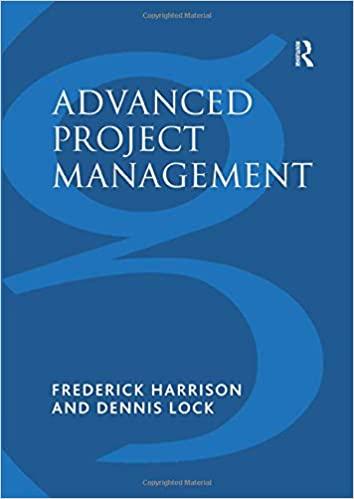Question
h I need answers for: 1- all the questions about the case under the ethical standards and rules for conduct as psychologists. 2- which ethical
I need answers for:
1- all the questions about the case under the ethical standards and rules for conduct as psychologists.
2- which ethical code applies to the case.
3- evidence from research.
4- arguments about the code and why we acted based on this particular code.
all of the above in one paragraph 500 words
Case 2.
Mariam is a newly qualified psychologist who has been asked to carry out a neuropsychological assessment on Mrs Alrashid who is 61 years old. Mrs Alrashid arrives to the clinic on her own and explains that her daughter will be joining her but is stuck in traffic. You agree to start without her and begin to explain what to expect and what the purpose of the assessment is. She is co-operative and friendly and the assessment proceeds. Forty-five minutes into the testing there is a knock at the door to say that Mrs Alrashids daughter is here and would like to sit in with her mother and speak to the psychologist. After checking that this is Ok with the client Mariam lets the daughter join them on condition, she is quiet and doesnt try to help her mother. When the appointment is finished Mrs Alrashids daughter asks to speak with the psychologist. She is curious why her mother is being assessed and where the request came from. With Mrs Alrashids permission, Mariam explains that their family doctor recommended an assessment because there was some concern about Mrs Alrashids cognitive ability and capacity to look after her own affairs.
Mrs Alrashids daughter explains that this request has in fact come from her younger brother who is close friends with the referring doctor. She is concerned about his motive for the assessment. He needed some money to buy a new flat and had asked his mother. She had refused on the grounds that it was not in a good area and so not a good investment, but she was willing to give him some money if he found a better property. She had already given him a substantial sum of money ten years ago to buy a villa for his family. Her daughter believed that her brother was trying to prove that his mother was mentally incompetent so he could take over her financial affairs.
- Do you carry on with the assessment? If yes, why? If no, why?
- Will your decision be affected by whether her performance so far showed evidence of impairment or no impairment?
- What if the assessment performance already showed signs of impairment?
- What is your professional opinion of the referring doctor?
- Would you give any advice to the daughter and mother about the consequences of poor results suggesting impairment or not?
- Codes of ethics:
- Evidence from research:
- Arguments:

Step by Step Solution
There are 3 Steps involved in it
Step: 1

Get Instant Access to Expert-Tailored Solutions
See step-by-step solutions with expert insights and AI powered tools for academic success
Step: 2

Step: 3

Ace Your Homework with AI
Get the answers you need in no time with our AI-driven, step-by-step assistance
Get Started


